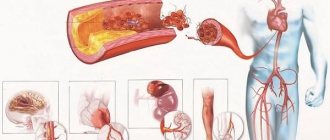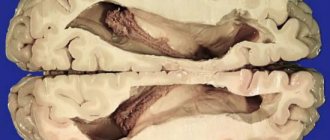A person spends a little less than a third of his life sleeping. This is an essential process that allows the body to regain strength and well-being by the next morning. Poor quality of rest and incorrect wake-up time will have a negative impact on a person’s productivity and mood. To avoid such problems, you need to know that there are several phases (deep sleep phase, REM sleep phase) that provide complete rest, and correctly calculate the time of sleep every day.
Sleep phases
Throughout the night, the body does not remain in the same state. Depending on a certain period, the muscular skeleton greatly relaxes or, conversely, becomes toned, and various parts of the brain “work.” There is a strict cyclic process that is repeated several times during the night.
The deep sleep phase is replaced by the fast sleep phase and vice versa. The processes are called orthodox and paradoxical periods. NREM sleep is divided into several stages. The time spent on it in the general cycle decreases closer to the morning.
How to get enough sleep?
You can take steps to improve your sleep habits. First, make sure you set aside enough time each day for sleep. With enough sleep, you will feel happier and more alert throughout the day.
Sleep is the first thing that busy people limit in their daily routine. Don't neglect sleep, the human body's resources are not limitless, and sooner or later, lack of sleep can affect your results or health.
NREM sleep concept
When a person falls asleep, he immediately enters the orthodox phase - this is a period characterized by measured breathing, stable heart function, and difficulty waking up. During this time period there is no sleepwalking, talking or any sudden body movements.
Scientists tend to believe that deep sleep is “responsible” for replenishing energy reserves and restoring the normal functioning of all body systems. The assumption has experimental confirmation - people who underwent intense physical activity or were in the acute stage of the disease were in the deep period stage longer than other subjects.
An unreasonable increase in the duration of slow-wave sleep indicates hidden pathologies, for example, thyroid dysfunction.
Stages
The entire time that a person is in the stage of orthodox rest is divided into four stages.
- Nap
A condition caused by relaxation of the muscular skeleton while maintaining brain activity. It is often observed that a dream intertwines with reality if someone is talking in the sleeping person’s room.
- Falling asleep
The stage in which consciousness gradually turns off. During this period, a reflex reaction to stimuli remains, so any sharp sound leads to awakening.
- Dream
The stage of maximum relaxation of the body while maintaining continuous control over basic functions such as breathing. The brain does not switch off completely, giving rise to dreams.
- Delta sleep
The deep period stage, characterized by complete relaxation while maintaining control over basic functions. During this period, body temperature reaches a minimum, blood circulation slows down, breathing becomes even and deep. The brain stops responding to external stimuli. Getting a person out of delta sleep is the most difficult thing.
Features of deep sleep
During paradoxical and orthodox periods of rest, the human body behaves differently. The slow phase has a number of features:
- Significant reduction in metabolism;
- Activation of the parasympathetic nervous system, as a result of which the heart rate slows down;
- Improving recovery processes at the cellular level;
- Decreased production of hormones other than growth hormone;
- Reduced amount of oxygen needed for life.
If the paradoxical phase affects a person’s psychological state, then orthodox sleep is needed to maintain physical health. Due to the improvement in recovery processes during this period of rest, doctors recommend that sick people sleep longer than usual in order to recover faster. If there are any reasons leading to disruption of deep rest, the person will soon begin to get sick.
Experiments conducted on mice have shown that lack of slow-wave sleep can be fatal.
We also recommend that you read the article: REM sleep: description, recommendations, what it even is.
How long should it last
This question cannot be answered unambiguously. Every person needs a certain amount of sleep. For example, Napoleon felt great after 4 hours of rest at night. And Henry Ford had to sleep 8 hours. On average, each person needs 7-8 hours of sleep.
Approximately 15-20% of your total rest should be spent on REM sleep. The remaining time is the slow phase. And to increase its duration by reducing REM sleep time, you need to follow simple recommendations.
Duration of the Orthodox phase
Today, people sleep less than they should, but still worry about their health. For this reason, doctors are increasingly hearing questions about how long deep sleep should last.
In fact, rest standards vary from person to person, although there are generally accepted standards. In general, the duration of the slow phase should be about 30% of the total sleep time. A significant decrease in this indicator will lead to memory problems, but an increase threatens the appearance of symptoms of prolonged sleep, that is, a person will wake up already tired.
Measuring the Duration of the Orthodox Phase
Accurate measurements are taken by medical equipment. However, such devices take up a lot of space, are expensive, and their use cannot be called convenient. For private use, sleep trackers have been created that allow you to determine the resting phase based on heart rate and frequency of movements.
The bracelets look stylish and are easy to use, although the measurements are subject to error. When combining their work with a smartphone, the data is transferred to the mobile device and stored for the required time. As a result, the duration of deep sleep is known and statistics are tracked based on the collected information.
Some trackers only show the total duration of the orthodox phase per night, while more advanced devices display the phase cycle throughout the entire measurement time. Naturally, the price of second-generation models is much higher.
A person determines the need to purchase a tracker independently, based on the presence or absence of sleep problems. If you just want to monitor your health and sleep quality, then a simple device will do.
In cases where insomnia or other problems with rest are diagnosed, a semi-professional tracker is necessary for the reliability of data collection.
Increasing the duration of deep sleep
Deep sleep is the phase from which the entire cycle begins, so a person cannot skip it. However, the reduction in the total rest time occurs due to this period in one of the cycle revolutions. As a result, there is a significant deterioration in well-being, bad mood in the morning and decreased immunity.
If such signs are detected, it is necessary to increase delta sleep. To do this, it is enough to follow a number of rules:
- Strict control over the time of falling asleep and waking up - you need to rest every day at the same time.
- Eat no later than 3-4 hours before going to bed. It is permissible to drink water or limit yourself to a glass of kefir. This measure is due to the fact that the body is forced to digest food instead of resting, and all active processes occur in the paradoxical phase.
- Complete rejection of bad habits helps to cleanse the body and normalize all processes. Alternatively, avoid smoking, caffeine and alcohol 4-5 hours before resting.
- Increasing physical activity will naturally prolong deep sleep because the body will need more time to recover.
- Meditation is relaxing. For some, these are sounds or aromas, while for others it is enough to sit for a few minutes in silence, throwing away all thoughts.
- Maintaining normal conditions in the room - temperature and humidity are regulated by household appliances. This will avoid sudden awakenings.
A few years ago, scientists advised people who have trouble falling asleep to listen to the sounds of nature. However, now medical statistics show that some patients who have lived in the city all their lives cannot fall asleep without the sounds of cars, especially when moving outside the city for permanent residence.
The delta is increased only to adequate values, that is, no more than 30% of the total rest duration. Further adjustment of indicators will only have a negative effect on the body.
Advice from somnologists
Experts in the field of studying sleep and its impact on human health give advice on increasing the duration of the delta stage of sleep:
- Eliminate distracting sounds from the bedroom, such as a ticking clock. If you are afraid of oversleeping, it is better to set an alarm clock. But it has been established that sharp sounds are stressful for the awakening body: muscle tension appears, the heart begins to beat faster.
- Exercising 2-4 hours before bedtime and a nice warm shower will speed up falling asleep.
An interesting fact has been established: if a few hours before bedtime the body temperature is increased by a couple of degrees, then after falling asleep it will drop, guaranteeing a biological decline that will strengthen night's rest.
- Meditation accompanied by pleasant, relaxing music will help improve the quality of your sleep.
- Avoid heavy dinners and coffee before bed. But it’s better not to go to bed hungry; a sharp drop in blood glucose levels will disrupt your rest.
- Aromatic oils are suitable for better falling asleep and increasing sleep soundness, for example, apple aroma or vanilla are relaxing and soothing. You can add a couple of drops of sage, mint, and valerian oil to the aroma lamp.
- Going to bed no later than 23 hours, and a new day should begin with sunrise, as our ancestors lived, according to the rhythms of nature and they had everything in order with sleep.
- There is no need to disrupt your usual routine on weekends; it allows you to shift your awakening by a maximum of an hour so as not to disturb biological rhythms.
If there are serious problems with the quality of night's rest, then it is better to solve them with a doctor, but to get deep and sound sleep, in order to feel rested and full of strength in the morning, it is enough to follow simple recommendations.
Orthodox sleep and intelligence
While conducting research, scientists noticed that although slow rest has a strong effect on a person’s physical condition, it does not bypass mental abilities. For the experiment, a list of unrelated words was taken that the subjects had to remember before going to bed.
After awakening, it turned out that a number of experimental subjects could remember a larger number of markers than others, and a direct relationship was established between the quality of memory and the duration of the deep phase.
This supports the theory that during orthodox sleep there is a transition of information from short-term memory to long-term memory.
Scientists know that patients suffering from insomnia experience memory impairment, problems with concentration, and a significant decrease in ability to work during the day.
All the same symptoms were found in people who deprived themselves of prolonged slow-wave sleep. This proves the fact of the impact of the deep phase on intellectual abilities in general and memory in particular.
Why is sleep important?
Sleep plays one of the most important roles for a person’s well-being and health throughout the entire period of his life. Getting enough quality sleep at the right time can help protect a person's mental health, maintain physical health, and improve quality of life and safety.
How you feel while awake directly depends on how you sleep.
During sleep, the human body works to maintain the health of a person's brain and improve physical condition, and also discharges the level of stress accumulated by a person during the day. For children and teenagers, sleep helps support healthy growth and development.
The damage from lack of sleep can happen overnight (like a car accident), or it can develop and grow over time. For example, prolonged sleep deprivation can increase the risk of certain chronic health problems. It also affects how a person thinks, reacts, works, learns, and interacts with others.
Healthy brain function and emotional well-being.
Sleep helps the brain work properly. While you sleep, your brain prepares for the day ahead. It forms new pathways to help you learn and remember new information.
Research shows that getting a good night's sleep helps you achieve better learning results. Regardless of what a person is studying, be it mathematics, playing the piano, new elements in sports, or learning to drive. Sleep helps improve these and other skills and can help you solve many problems. Sleep also helps sharpen attention and focus, make clearer decisions and be creative.
Research has shown that sleep deprivation alters activity in certain areas of the brain. If a person lacks sleep, he may have problems making decisions, solving various problems, and controlling emotions and behavior. Sleep deprivation has also been linked to depression, suicide and unnecessary risk-taking behavior.
Children and adolescents with sleep deficiency often have problems communicating with peers. They may become more impulsive and aggressive, and experience frequent mood swings, sadness, depression, stress and lack of motivation. They often have distracted attention and perform worse in school.
Physical health.
Sleep plays an important role in your physical health. Sleep is involved in the healing and repair of your heart and blood vessels. Chronic sleep deprivation is associated with an increased risk of heart disease, kidney disease, high blood pressure, diabetes and stroke.
Lack of sleep also increases the risk of obesity.
One study of teenagers found that every hour of sleep lost increased the risk of obesity. Risks of obesity from lack of sleep are also present in other age groups.
Sleep helps maintain an optimal balance of hormones that make you feel hungry (ghrelin) or full (leptin). When you don't get enough sleep, your ghrelin levels increase and your leptin levels decrease. This provokes an excessive feeling of hunger.
Sleep also affects how your body responds to insulin, the hormone that controls blood sugar (glucose) levels. Lack of sleep leads to higher blood sugar levels than normal, which can contribute to the development of diabetes.
Sleep also supports healthy growth and development. Deep sleep causes the body to produce a hormone that promotes normal growth in children and adolescents. This hormone also increases muscle mass and helps repair cells and tissue in children, teenagers and adults. Sleep is important during periods of puberty and fertility (the ability of a sexually mature organism to produce offspring).
The health of your immune system depends on sleep. This system protects your body from foreign or harmful substances. Chronic sleep deprivation can alter the immune system's responses and weaken it. As a result, you may become more susceptible to multiple infections (such as the flu).
Wakefulness and safety.
Getting enough good sleep at the right time helps you function well during the day. People who lack sleep are less productive at work and school. It takes longer to complete tasks, less time to react, and more errors.
After several nights of sleep deprivation, even losing 1-2 hours of sleep per night, your ability to function suffers as if you hadn't slept at all for a day or two.
Lack of sleep can also lead to microsleep.
Microsleep refers to short periods of sleep that occur when you are usually awake.
A person is not able to control microsleep; he may not even notice it. It's like memory lapses.
Even if you are not driving a car, microsomes can cause you a lot of trouble. For example, during a lecture you may miss some information and not understand the point. With a high probability, you could just fall asleep and not even know about it.
Many people are unaware of the risks of sleep deprivation. In fact, they may not even realize it. Even with limited or poor quality sleep, they may think they are functioning at 100%.
As an example, we can cite, again, drivers, especially those who have been behind the wheel for a long time. They can be absolutely sure that they are not sleepy and feel normal and capable of driving safely. However, research shows that lack of sleep limits a person's driving ability just as much as drinking alcohol. It is estimated that driver drowsiness is responsible for approximately 100,000 car accidents per year, resulting in approximately 15,000 deaths.
Representatives of any profession can suffer from sleep deficiency. And of course, because of this, lack of sleep can cause both personal problems and problems on a global scale.
Sleep disorders
Statistics show that approximately a quarter of the world's population suffers from sleep disorders. However, the symptoms do not differ among people of different races, genders and regions of residence. All complaints from patients are divided into three large groups:
- It takes a long time to fall asleep;
- Frequent sudden rises during the night for no apparent reason;
- Feeling unwell in the morning.
The disorder occurs in any phase and any cycle during the night. The phenomenon negatively affects the physical and mental state of a person, and therefore requires treatment. To understand how to solve a sleep problem, you need to establish the cause of its occurrence.
Causes of orthodox sleep disturbances
A violation is only recognized if it persists for a long period of time. Problems lasting up to 5 days are often associated with a change in environment, time zones or lifestyle, and therefore go away on their own after a period of acclimatization of the body to new conditions.
If normal sleep does not come for more than a week, the reasons for this condition can be very serious.
- Psycho-emotional problems
Severe shock, prolonged stay in a stressful environment, dangerous work - all this traumatizes the psyche and leads to insomnia. This also includes depression of varying duration, bipolar disorders and other similar diseases.
- Diseases of internal organs
Even silent diseases, for example, developing thyroid dysfunction, cause disruption to normal health. As a result, a person is deprived of normal rest. If the diseases are accompanied by pain, then in more than 50% of cases they are accompanied by sleep disturbances.
Pregnant women are a special risk category. Even while carrying a child, normal rest becomes impossible, since increased body weight and the inability to sleep in the usual way cause constant discomfort. And after delivery, the special rhythm of the child’s life prevents the normalization of the phases. This is where depression in pregnant women, periods of insomnia and aggression towards others arise.
Only a few are able to cope with this on their own. In any case, doctors recommend long-term rest for the sake of maintaining your own health, both physical and mental.
The effect of stress on deep sleep
If a person has emotional disorders, he will not be able to sleep well for a long period of time. Although here a lot depends on the individual characteristics of the organism.
Often, after strong experiences, people become emotionally tired and quickly fall asleep. As a result, the deep sleep phase does not change, which makes it much easier to survive any adversity.
There is a category of people whose disorders are accompanied by a state of anxiety that turns into depression. The problem “does not go away” even for a minute, and even if a person falls asleep, he does not fully rest. In this case, only treatment of the cause of the disease, as well as temporary use of mild sedatives, will help.
In medicine, there are other cases called hypersomnia. The symptom is no less serious because it occurs suddenly - a person is able to fall asleep in transport, during a meeting or in a queue. Moreover, his condition will not be associated with body fatigue. Hypersomnia requires detailed study and a special approach to treatment.
How to cure sleep disorders
To determine therapy to treat a patient's sleep, it is necessary to first determine the causes of the problem, as well as the duration of the symptom.
Therapy is selected based on the diagnosis. Sometimes an integrated approach is required to normalize the functions of various body systems, and sometimes it is enough to familiarize yourself with the rules of preparing for rest and strictly follow them.
In some cases, for example, when disorders are associated with stress, a course of sleeping pills solves the problem. Artificial induction into deep sleep allows the body to recover, and then it functions as before.
Is it possible to get a good night's sleep?
The body tends to compensate for the existing lack of sleep. The accumulated deficit of rest is made up by the brain as soon as it is given such an opportunity. But you will be able to get enough sleep for the future with only a very small reserve. If you know in advance that you will need to stay awake for a long time, you should try to sleep 1–2 hours (that is, 1 sleep cycle) more 2–3 days before the event.
USEFUL INFORMATION: How long does healthy sleep last for an adult: how many hours do you need for healthy sleep
Thus, sleep is the most important component of a person’s physical and mental health. A general lack of sleep or a disorder in one of the phases inevitably leads to poor health, decreased performance and quality of life.
Detection of delta sleep peptide
In the 70s of the 20th century, active research was carried out in the field of sleep and dreams. During experiments on sleeping rabbits, it was discovered that the animals' bodies produce a special peptide indicating the delta stage of rest.
Studying this protein compound for several decades has allowed scientists to discover many beneficial properties and effects on the body:
- Increasing the body's natural resistance to stress;
- Slowing down the aging processes of various systems;
- Blocking the growth of malignant tumors;
- Reducing the intensity and frequency of epileptic seizures;
- Anesthesia.
Today, the peptide obtained in the delta phase of sleep is used in various fields of medicine, and the processes occurring during rest are still being studied by scientists.
Share on social media networks









